SEO
SaaS Homepage SEO: Keywords, Linking & More

Start-up SaaS websites typically consist of the home page and maybe a handful of supporting pages – neither of which offer any SEO value.
A good SaaS homepage will drive conversions and improve your business on the whole. But how do you optimize yours?
In this article, you will learn about SaaS homepage SEO challenges, the role your homepage plays in SEO, and different keywords to consider when optimizing a SaaS homepage.
Why Is Homepage SEO So Challenging For SaaS Brands, Specifically?
Let’s face it, homepage SEO is confusing for almost everyone.
Whether it is a SaaS company, a local company, or another business type, you’ll find many in each vertical who struggle to make good use of this real estate from an SEO perspective.
At the same time, the homepage is also the one asset almost every business cares about the most.
It’s often the primary landing page, regardless of the traffic source. Because of that, it’s also that one asset that most often:
- Welcomes visitors.
- Makes a first impression about the brand.
- Describes what the company does (or at least hint at it and suggest where else someone could learn more about it).
- Explains what value the company provides and what sets the company and its products apart in the market.
- Points visitors to where they can find the information they’re looking for (both through the navigation and any internal links you place there).
As Yoast explained the typical approach to homepage SEO:
“One purpose that I feel a homepage doesn’t have, and that is ranking for keywords other than your business name or brand.”
That’s true for most brands. But I’d argue that the SaaS market (and what goes with it, SaaS marketing) is different from other industries.
What’s Different About SaaS?
Many early-stage brands don’t have any other commercial assets (or even the ability to create more, at that).
For many SaaS companies, the homepage plays a commercial role and might be their only commercial page.
Example:

Then, there’s the issue of brand recognition.
Everyone’s heard of Asana. Drift. HubSpot.
Those companies can use fancy taglines in their meta title tag and get away with it. They know that people are looking for their brand anyway.
As for other keywords, those companies have thousands of pages to target those phrases.
(Having said that, Hubspot still optimizes its homepage for product categories.)
But, when you’re a relatively new SaaS company trying to carve a space for yourself in the industry – when you’re trying to beat more established competitors and focused on kick-starting growth – counting on someone searching Google your name and getting to the homepage (remember, the only page on the site) isn’t going to get you far.
So, what are your options?
The Role Of A Homepage In SaaS SEO Strategy
The importance of your homepage goes far beyond the fact that you have no other pages to optimize (yet).
The clearer you are in explaining what your product does, what category it falls into, and what value users get from it, the easier it will be for the search engine to establish how to rank you in the search results.
When you’re just getting started in SaaS, the homepage will attract most if not all organic links.
Whatever mentions, media references or other PR your product acquires will likely link to your homepage.
Your initial link-building strategies – guest posting, digital PR, podcast appearances, or submitting the site to SaaS directories – will more than likely also target the homepage.
As other sites link to your homepage, they pass along PageRank which can then be distributed around your site to help specific pages get found by Google.
Smart internal linking will help you pass the benefit of that PageRank you’ve gathered at the homepage onto new pages as you develop them.
What Keywords To Use To Optimize A SaaS Homepage, Then?
There are three types of keywords to focus on.
The first is obvious, but to find the right phrases for the others, you will need to do a bit of keyword research.
1. Your Brand
Despite the need to focus on other terms, it’s still a good idea to include brand-related terms on the homepage.
At a minimum, include the company or the product name in the homepage’s title tag, typically at the end of the tag.
This way, you ensure that the main focus of the tag is on your primary target keywords.
Example:
 Screenshot by author, April 2021
Screenshot by author, April 2021
In most cases, you’ll naturally sprinkle the brand across the page, too.
You’ll mention it in the meta description, perhaps include it in the main subheading, under the tagline, in alt text for an image or two, and elsewhere in the body copy (in reviews or testimonials, for example) as it naturally occurs.
2. Product Category (If The Intent Is Right)
This is where you begin to position your homepage (and the brand) for phrases that can drive valuable commercial traffic.
Product category-related keywords describe the primary category that best defines your product.
These aren’t the keywords that might define the project’s attributes or functionality but more general seed phrases that tell a user what the product is and aren’t related to your brand in any way.
These are often the phrases you use to describe the product to clients, investors, or various stakeholders – Enterprise Resource Planning software, CMS and ecommerce, communications platform, etc.
These are the terms you’ll find salespeople referencing in their emails, sales materials, and so on.
Where To Include The Product Category-Related Keyword?
As this is the primary keyword you’ll be targeting, use it on every page:
- In meta tags.
- In the page’s H1 tag.
- In the page’s body content’s opening.
- In alt tags, etc.
An Exception: When The Keyword Has A Different User Intent Than The Homepage
There might be situations where the user intent for a product category-related phrase is different than what you can target with the homepage.
Even though the phrase might seem to have a commercial intent at first, upon inspection, you may realize it ranks for a whole variety of intents.
Take the keyword phrase [small business CRM]. The keyword seems ideal to use on a software product’s homepage.
But look at the SERP. Those listings include mostly informational content:
- Most of the top-ranking pages are listicles presenting collections of CRM software solutions.
- None of those pages are product homepages.
- There is only one actual CRM software domain ranking, and even that’s not a commercial page.
 Screenshot by author, April 2021
Screenshot by author, April 2021
Ranking a homepage would be pretty difficult to impossible to achieve, especially for a lesser-known SaaS brand.
You have two options here:
- Compromise and identify a different product category-related keyword (or at least one that is close enough to the product category). Create a separate page to target the original keyword you intended with content relevant to its intent.
- Focus only on the brand. I personally believe that’s too much of a compromise for an early-stage startup.
3. Keywords Relating To The Product’s Core Offerings
We’ve covered positioning for your brand and the product category.
But, what about those other phrases that describe your product? What about keywords that relate to the product’s features or functionality?
These phrases aren’t your primary keywords but there is a way to weave them in.
What’s more, you can use the homepage to support specific pages you might create for those keywords.
Here’s how:
Include a list of your product’s functionality. You most likely have it on the page already in some shape or form.
 Screenshot by author, April 2021
Screenshot by author, April 2021
Then, link each of those sections to a relevant landing page.
Ideally, you will use the additional keyword in the link’s anchor text to increase relevance. You’ll achieve three objectives this way:
- You’ll increase the topical relevance of the homepage. Google and other search engines will better understand what your product does and what phrases would be relevant to your domain.
- You’ll be assisting visitors in finding any content that’s relevant to their needs.
- And finally, you’ll be strengthening the page authority of those additional assets you’ve created to rank for keywords related to the product’s features or functionality.
Final Thoughts
The ultimate takeaway is that your homepage should include the most relevant keywords and keyword phrases related to your business.
Whether or not you plan to optimize for the organic channel, it is important for you to understand that search engines are going to be picking up on these keywords and the various ways consumers will try to find your product.
So, don’t neglect the basics!
More Resources:
Featured Image: Andrey Suslov/Shutterstock
!function(f,b,e,v,n,t,s)
{if(f.fbq)return;n=f.fbq=function(){n.callMethod?
n.callMethod.apply(n,arguments):n.queue.push(arguments)};
if(!f._fbq)f._fbq=n;n.push=n;n.loaded=!0;n.version=’2.0′;
n.queue=[];t=b.createElement(e);t.async=!0;
t.src=v;s=b.getElementsByTagName(e)[0];
s.parentNode.insertBefore(t,s)}(window,document,’script’,
‘https://connect.facebook.net/en_US/fbevents.js’);
if( typeof sopp !== “undefined” && sopp === ‘yes’ ){
fbq(‘dataProcessingOptions’, [‘LDU’], 1, 1000);
}else{
fbq(‘dataProcessingOptions’, []);
}
fbq(‘init’, ‘1321385257908563’);
fbq(‘track’, ‘PageView’);
fbq(‘trackSingle’, ‘1321385257908563’, ‘ViewContent’, {
content_name: ‘saas-homepage-seo’,
content_category: ‘on-page-seo seo seo-strategy’
});
SEO
HARO Has Been Dead for a While
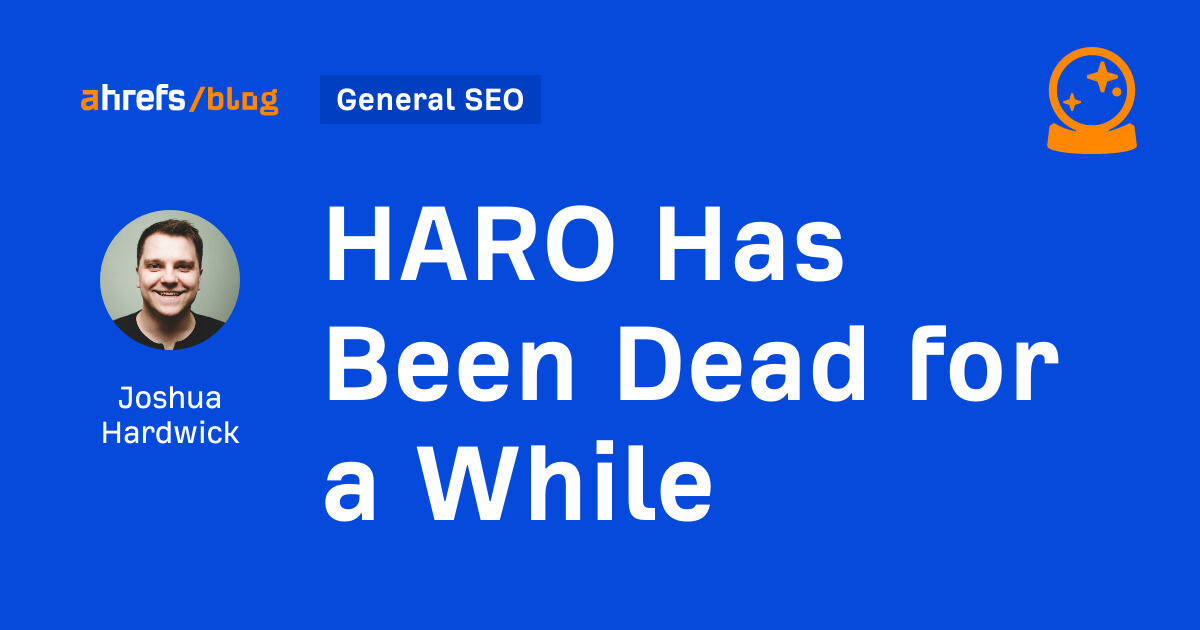
I know nothing about the new tool. I haven’t tried it. But after trying to use HARO recently, I can’t say I’m surprised or saddened by its death. It’s been a walking corpse for a while.
I used HARO way back in the day to build links. It worked. But a couple of months ago, I experienced the platform from the other side when I decided to try to source some “expert” insights for our posts.
After just a few minutes of work, I got hundreds of pitches:
So, I grabbed a cup of coffee and began to work through them. It didn’t take long before I lost the will to live. Every other pitch seemed like nothing more than lazy AI-generated nonsense from someone who definitely wasn’t an expert.
Here’s one of them:
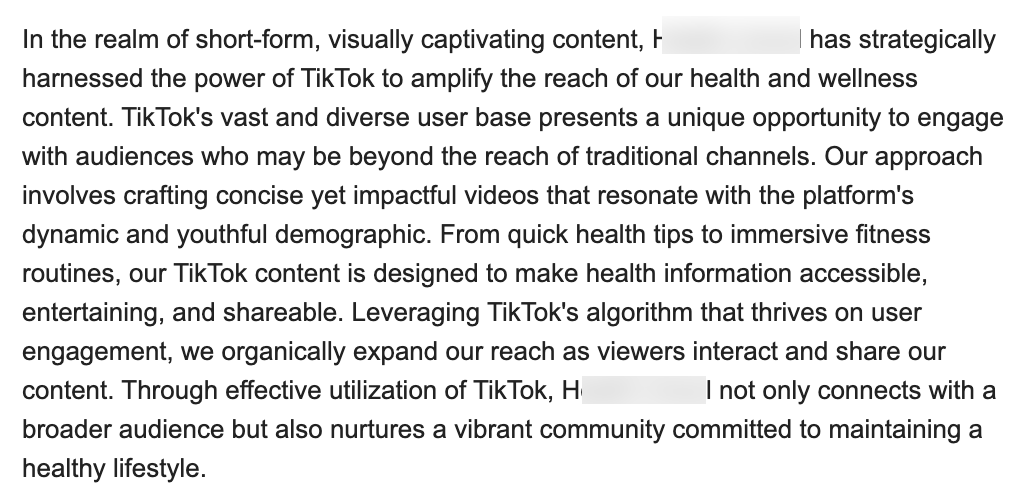

Seriously. Who writes like that? I’m a self-confessed dullard (any fellow Dull Men’s Club members here?), and even I’m not that dull…
I don’t think I looked through more than 30-40 of the responses. I just couldn’t bring myself to do it. It felt like having a conversation with ChatGPT… and not a very good one!
Despite only reviewing a few dozen of the many pitches I received, one stood out to me:


Believe it or not, this response came from a past client of mine who runs an SEO agency in the UK. Given how knowledgeable and experienced he is (he actually taught me a lot about SEO back in the day when I used to hassle him with questions on Skype), this pitch rang alarm bells for two reasons:
- I truly doubt he spends his time replying to HARO queries
- I know for a fact he’s no fan of Neil Patel (sorry, Neil, but I’m sure you’re aware of your reputation at this point!)
So… I decided to confront him 😉
Here’s what he said:
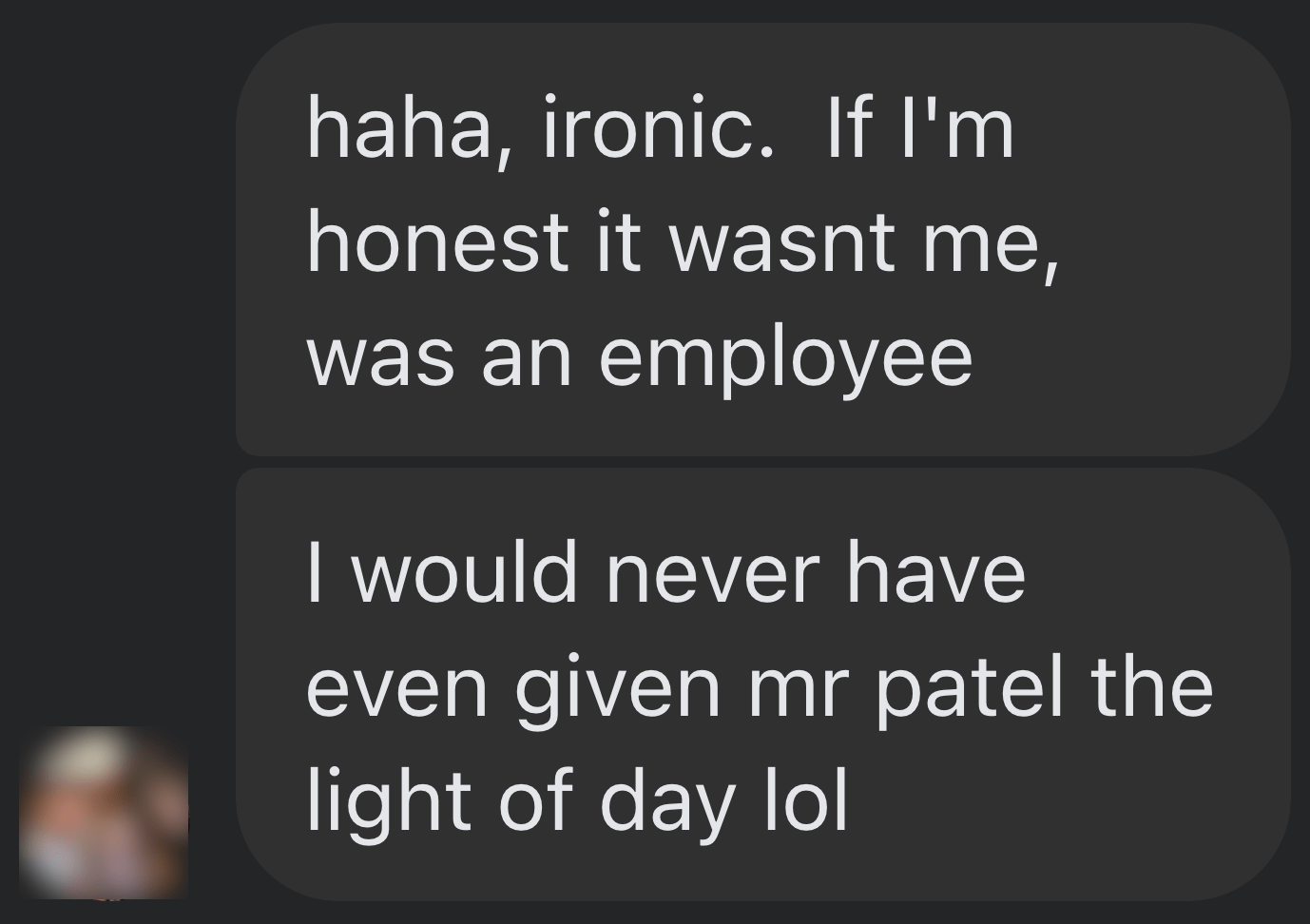

Shocker.
I pressed him for more details:
I’m getting a really good deal and paying per link rather than the typical £xxxx per month for X number of pitches. […] The responses as you’ve seen are not ideal but that’s a risk I’m prepared to take as realistically I dont have the time to do it myself. He’s not native english, but I have had to have a word with him a few times about clearly using AI. On the low cost ones I don’t care but on authority sites it needs to be more refined.
I think this pretty much sums up the state of HARO before its death. Most “pitches” were just AI answers from SEOs trying to build links for their clients.
Don’t get me wrong. I’m not throwing shade here. I know that good links are hard to come by, so you have to do what works. And the reality is that HARO did work. Just look at the example below. You can tell from the anchor and surrounding text in Ahrefs that these links were almost certainly built with HARO:
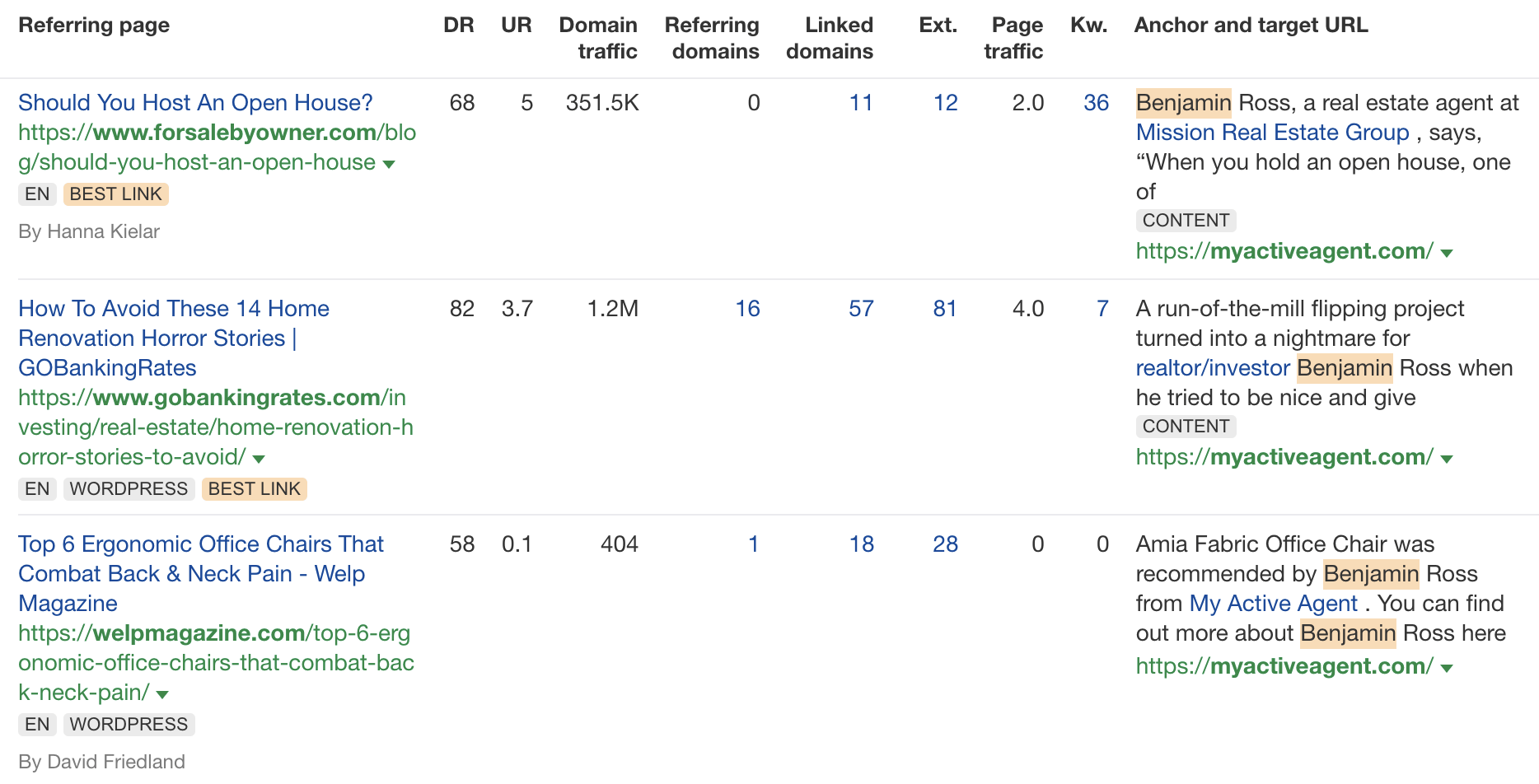

But this was the problem. HARO worked so well back in the day that it was only a matter of time before spammers and the #scale crew ruined it for everyone. That’s what happened, and now HARO is no more. So…
If you’re a link builder, I think it’s time to admit that HARO link building is dead and move on.
No tactic works well forever. It’s the law of sh**ty clickthroughs. This is why you don’t see SEOs having huge success with tactics like broken link building anymore. They’ve moved on to more innovative tactics or, dare I say it, are just buying links.
Sidenote.
Talking of buying links, here’s something to ponder: if Connectively charges for pitches, are links built through those pitches technically paid? If so, do they violate Google’s spam policies? It’s a murky old world this SEO lark, eh?
If you’re a journalist, Connectively might be worth a shot. But with experts being charged for pitches, you probably won’t get as many responses. That might be a good thing. You might get less spam. Or you might just get spammed by SEOs with deep pockets. The jury’s out for now.
My advice? Look for alternative methods like finding and reaching out to experts directly. You can easily use tools like Content Explorer to find folks who’ve written lots of content about the topic and are likely to be experts.
For example, if you look for content with “backlinks” in the title and go to the Authors tab, you might see a familiar name. 😉
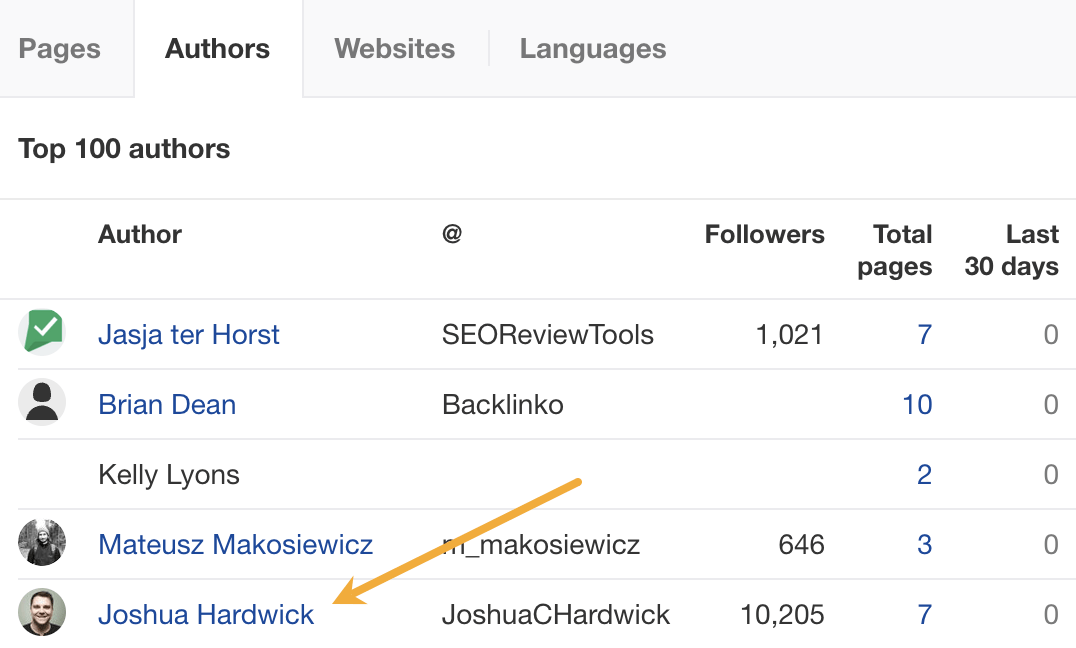

I don’t know if I’d call myself an expert, but I’d be happy to give you a quote if you reached out on social media or emailed me (here’s how to find my email address).
Alternatively, you can bait your audience into giving you their insights on social media. I did this recently with a poll on X and included many of the responses in my guide to toxic backlinks.
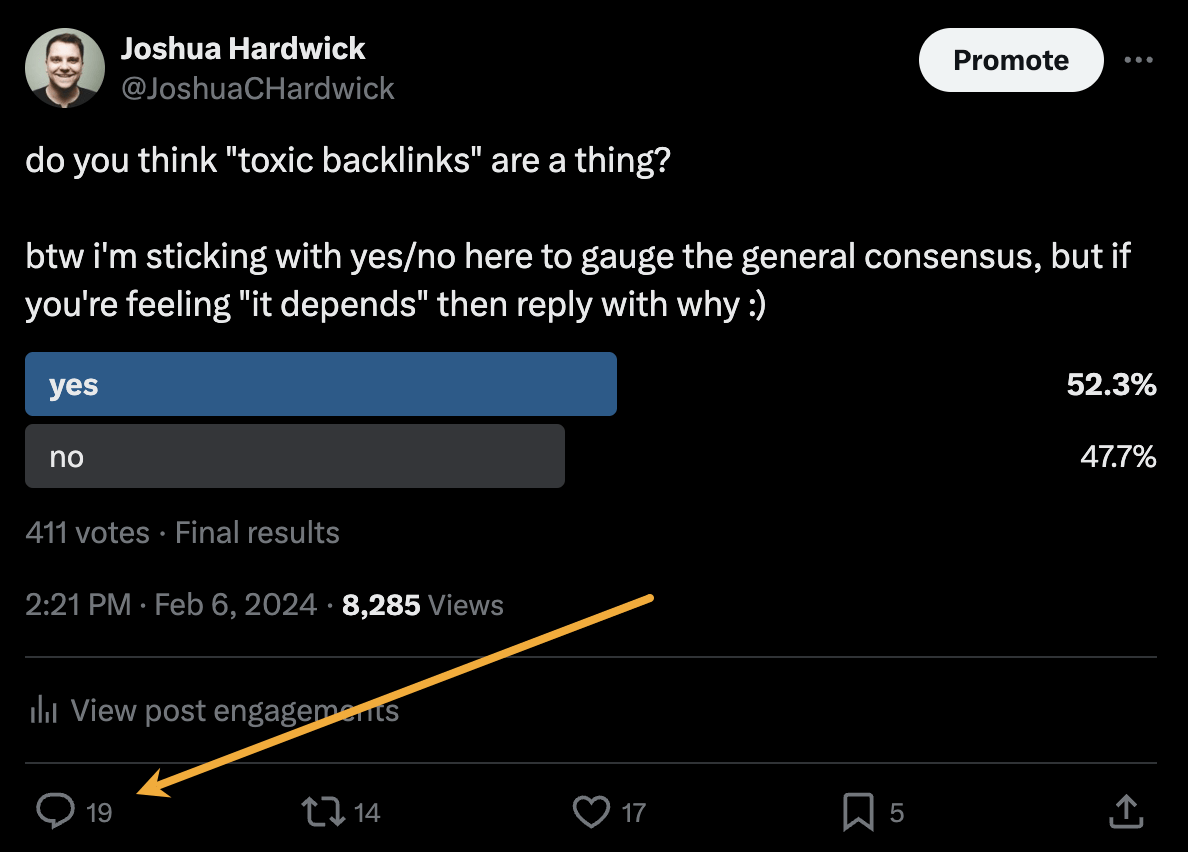

Either of these options is quicker than using HARO because you don’t have to sift through hundreds of responses looking for a needle in a haystack. If you disagree with me and still love HARO, feel free to tell me why on X 😉
SEO
Google Clarifies Vacation Rental Structured Data

Google’s structured data documentation for vacation rentals was recently updated to require more specific data in a change that is more of a clarification than it is a change in requirements. This change was made without any formal announcement or notation in the developer pages changelog.
Vacation Rentals Structured Data
These specific structured data types makes vacation rental information eligible for rich results that are specific to these kinds of rentals. However it’s not available to all websites. Vacation rental owners are required to be connected to a Google Technical Account Manager and have access to the Google Hotel Center platform.
VacationRental Structured Data Type Definitions
The primary changes were made to the structured data property type definitions where Google defines what the required and recommended property types are.
The changes to the documentation is in the section governing the Recommended properties and represents a clarification of the recommendations rather than a change in what Google requires.
The primary changes were made to the structured data type definitions where Google defines what the required and recommended property types are.
The changes to the documentation is in the section governing the Recommended properties and represents a clarification of the recommendations rather than a change in what Google requires.
Address Schema.org property
This is a subtle change but it’s important because it now represents a recommendation that requires more precise data.
This is what was recommended before:
“streetAddress”: “1600 Amphitheatre Pkwy.”
This is what it now recommends:
“streetAddress”: “1600 Amphitheatre Pkwy, Unit 6E”
Address Property Change Description
The most substantial change is to the description of what the “address” property is, becoming more descriptive and precise about what is recommended.
The description before the change:
PostalAddress
Information about the street address of the listing. Include all properties that apply to your country.
The description after the change:
PostalAddress
The full, physical location of the vacation rental.
Provide the street address, city, state or region, and postal code for the vacation rental. If applicable, provide the unit or apartment number.
Note that P.O. boxes or other mailing-only addresses are not considered full, physical addresses.
This is repeated in the section for address.streetAddress property
This is what it recommended before:
address.streetAddress Text
The full street address of your vacation listing.
And this is what it recommends now:
address.streetAddress Text
The full street address of your vacation listing, including the unit or apartment number if applicable.
Clarification And Not A Change
Although these updates don’t represent a change in Google’s guidance they are nonetheless important because they offer clearer guidance with less ambiguity as to what is recommended.
Read the updated structured data guidance:
Vacation rental (VacationRental) structured data
Featured Image by Shutterstock/New Africa
SEO
Google On Hyphens In Domain Names

Google’s John Mueller answered a question on Reddit about why people don’t use hyphens with domains and if there was something to be concerned about that they were missing.
Domain Names With Hyphens For SEO
I’ve been working online for 25 years and I remember when using hyphens in domains was something that affiliates did for SEO when Google was still influenced by keywords in the domain, URL, and basically keywords anywhere on the webpage. It wasn’t something that everyone did, it was mainly something that was popular with some affiliate marketers.
Another reason for choosing domain names with keywords in them was that site visitors tended to convert at a higher rate because the keywords essentially prequalified the site visitor. I know from experience how useful two-keyword domains (and one word domain names) are for conversions, as long as they didn’t have hyphens in them.
A consideration that caused hyphenated domain names to fall out of favor is that they have an untrustworthy appearance and that can work against conversion rates because trustworthiness is an important factor for conversions.
Lastly, hyphenated domain names look tacky. Why go with tacky when a brandable domain is easier for building trust and conversions?
Domain Name Question Asked On Reddit
This is the question asked on Reddit:
“Why don’t people use a lot of domains with hyphens? Is there something concerning about it? I understand when you tell it out loud people make miss hyphen in search.”
And this is Mueller’s response:
“It used to be that domain names with a lot of hyphens were considered (by users? or by SEOs assuming users would? it’s been a while) to be less serious – since they could imply that you weren’t able to get the domain name with fewer hyphens. Nowadays there are a lot of top-level-domains so it’s less of a thing.
My main recommendation is to pick something for the long run (assuming that’s what you’re aiming for), and not to be overly keyword focused (because life is too short to box yourself into a corner – make good things, course-correct over time, don’t let a domain-name limit what you do online). The web is full of awkward, keyword-focused short-lived low-effort takes made for SEO — make something truly awesome that people will ask for by name. If that takes a hyphen in the name – go for it.”
Pick A Domain Name That Can Grow
Mueller is right about picking a domain name that won’t lock your site into one topic. When a site grows in popularity the natural growth path is to expand the range of topics the site coves. But that’s hard to do when the domain is locked into one rigid keyword phrase. That’s one of the downsides of picking a “Best + keyword + reviews” domain, too. Those domains can’t grow bigger and look tacky, too.
That’s why I’ve always recommended brandable domains that are memorable and encourage trust in some way.
Read the post on Reddit:
Read Mueller’s response here.
Featured Image by Shutterstock/Benny Marty
-

 PPC7 days ago
PPC7 days agoA History of Google AdWords and Google Ads: Revolutionizing Digital Advertising & Marketing Since 2000
-

 WORDPRESS6 days ago
WORDPRESS6 days agoTurkish startup ikas attracts $20M for its e-commerce platform designed for small businesses
-

 MARKETING5 days ago
MARKETING5 days agoRoundel Media Studio: What to Expect From Target’s New Self-Service Platform
-

 SEO5 days ago
SEO5 days agoGoogle Limits News Links In California Over Proposed ‘Link Tax’ Law
-

 MARKETING6 days ago
MARKETING6 days agoUnlocking the Power of AI Transcription for Enhanced Content Marketing Strategies
-

 SEARCHENGINES6 days ago
SEARCHENGINES6 days agoGoogle Search Results Can Be Harmful & Dangerous In Some Cases
-
SEARCHENGINES5 days ago
Daily Search Forum Recap: April 12, 2024
-

 SEO4 days ago
SEO4 days ago10 Paid Search & PPC Planning Best Practices





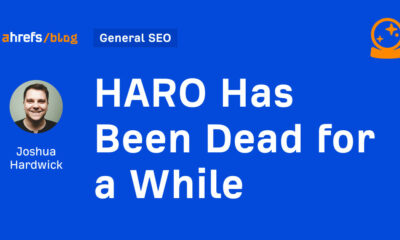









You must be logged in to post a comment Login